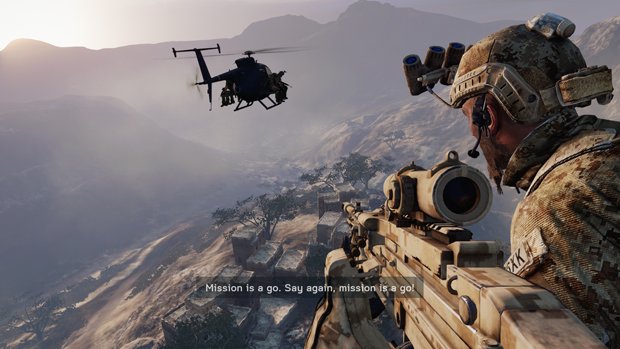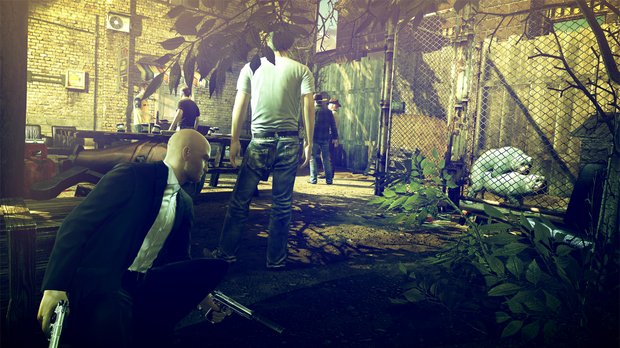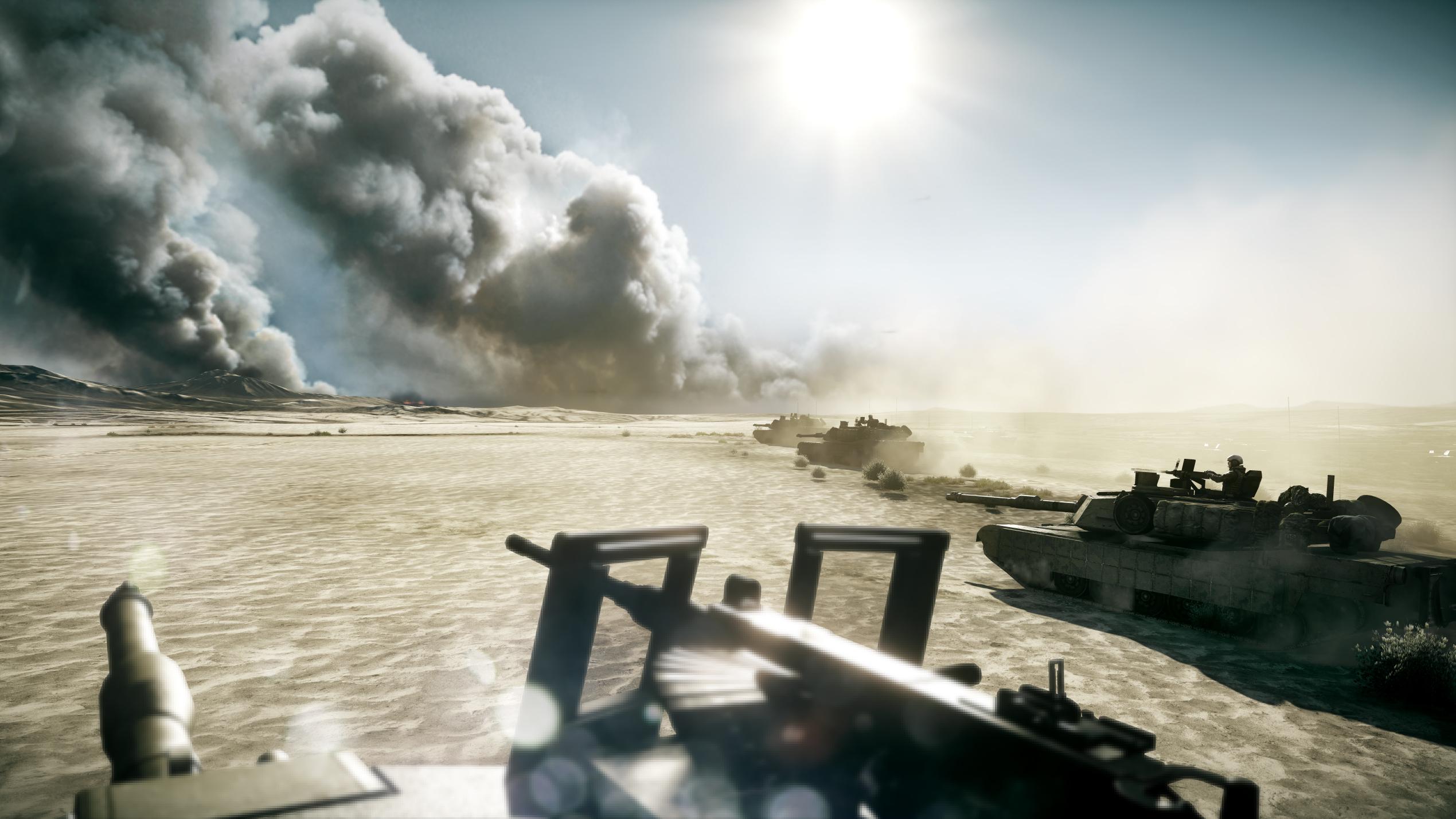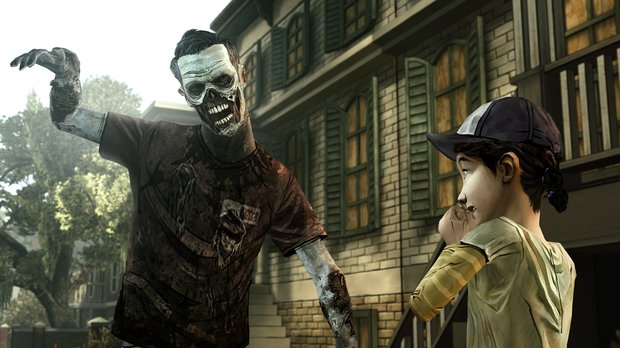2012: The year intelligent old-school gaming struck back
How the best new stuff on consoles was old stuff
Think about that. A slow, methodical, quiet, understated example of the most apparently dead of genres is our game of the year. And the thing is, as outstanding a work as TWD is, that decision was ultimately a damn hard one to make. Q4 of 2012 has just been that good for console gaming. And every one of its best games, to some degree or another, represents the rejuvenation of a gameplay conceit all too often now viewed as the preserve of the past, the PC, or both.

Meanwhile, some expected sure-fire hits of console gaming’s current mainstream ethos have fallen on their arses. Most notably Medal of Honor: Warfighter, which should have had everything going for it. It was a modern military first-person shooter from EA, with a marketing push to match. It used showboating fancy new graphics technology by way of DICE’s Frostbite 2 Engine. It was a sequel to a well-known franchise. But it tanked. Yes, releasing just before this year's Call of Duty may have nailed its coffin lid shut, but on paper MOH was the blueprint for mainstream success and should have put up a better fight. Megaton competition aside, the fact remains that EA had certain business expectations for the game on its own terms, and it likely fell short of those.
Traditional triple-A games seem to have been finding it harder to make the kind of commercial dent that justifies their costs in 2012. For a couple of years, in fact. Just look at what's just happened to poor old THQ, even after its pledge to cater primarily to the core gamer.
Meanwhile, a turn-based strategy game smashed its way into the UK all-formats chart at number 7. That chart doesn’t even include digital downloads, where the majority of XCOM’s considerable PC sales would no doubt originate.

Obviously, from my notoriously beard-strokey perspective, this phenomenon is brilliant. But what’s causing it? My guess would be that a perfect storm of factors is kicking in right now. Firstly, the length of this console generation so far means that we’re way past the point at which developers traditionally hit the state of technical mastery over the available hardware, allowing ideas to overtake logistical concerns. With all the technical wrangling done, game design can become more freely creative.
That explains games like Dishonored being pitched, as well as technically impressive revisions of ambitious old formulas like Hitman. But someone has to be buying this stuff to make it worth the risk. And that’s where the length of this generation comes into play in a slightly different way. You see seven years in, and still with no next-gen revolution in sight, we’re way off the usual narrative of hardware cycling now. And gamers seem to be getting bored.

Sales are down across the board. And while games that would probably have been impressive enough a few years ago are now old hat on release (hello again, MOH), I reckon there's more to it than that. Without the excitement of shiny new machines, it's entirely feasible that the less committed, more fad-driven gamers are falling by the wayside. Nintendo has admitted this to be a problem when dealing with the casual market, but I suspect everyone is suffering as a result now. Increasingly, publishers are being left with the most core of core gamers to sell to. And those guys have different standards.
Sign up to the GamesRadar+ Newsletter
Weekly digests, tales from the communities you love, and more
This generation of hardcore, game-savvy players has been exposed to current-gen game standards for so damn long that I suspect it now craves evolution rather fiercely. Although I'm loathe to use internet comments as a yardstick for anything of weight, you only need to look at the number of engaged, purchase-ready voices crying out for originality to realise what the enthusiasts are after. Concurrently, the steady trickle of more interesting, smaller games via XBLA and PSN has very probably had a slowly building but very serious effect on mainstream perceptions of gaming over the last few years, eroding the blinkers and opening eyes to more thoughtful, off-kilter possibilities.
A game like Braid or Journey even existing on consoles without those download services would have been unthinkable, but with those frameworks in place such games have not only happened, but have managed to be hits. And when games like that do well on consoles, tastes are bound to start changing on the whole.

And it seems they have. And in turn, long-standing developers of unfashionable ideas are finding a spotlight again. The next step? The ideal scenario is a great big feedback loop, leading to healthier gaming appetites being satiated with healthier creative ideas for many years to come. Though there’s also every chance that if next-gen hits next year, we’ll just drop straight back into the graphics-as-priority arms-race and have to start the process all over again on new hardware.
Obviously that would be a damn tragedy. So here’s hoping, eh?
You know that kid at parties who talks too much? Drink in hand, way too enthusiastic, ponderously well-educated in topics no one in their right mind should know about? Loud? Well, that kid’s occasionally us. GR Editorials is a semi-regular feature where we share our informed insights on the news at hand. Sharp, funny, and finger-on-the-pulse, it’s the information you need to know even when you don’t know you need it.



